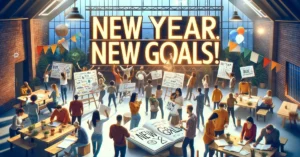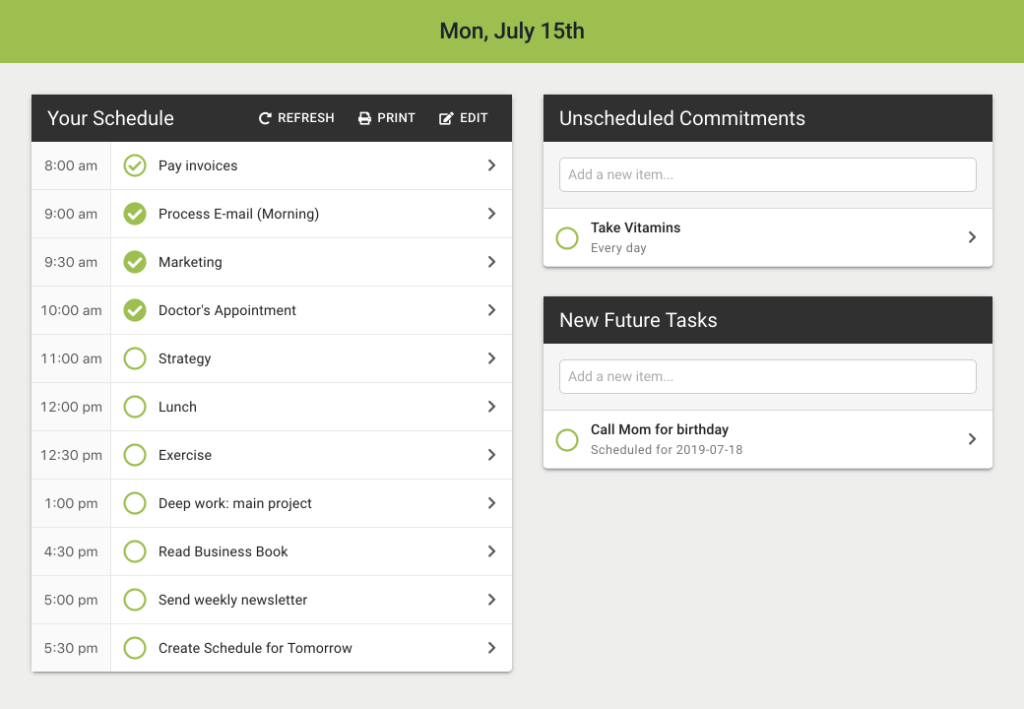As people age, they often report that time starts to speed up. Days and weeks flash by in an instant and the years seem to pass like months in former times.
Younger people experience it too, when monotonous days blur into weeks and then months and they are left wondering where all their time went.
Both may ask the question: can we slow down time?
The answer is yes. Not literally, of course, but perceptually.
And what do you get when you slow down time? A feeling of expansiveness and relaxation. More memories that remind you of a life richly led. And a longer perceived life—regardless of how long our actual life span is.
Before we get started, I’d like to note that this article is a mix of research from others and my own personal lived experience in slowing down time. Use it as a launchpad for experimentation, not gospel, and find what works best for you.
(At Least) Three Ways to Perceive Time
While there exists a body of research on time perception, for the purposes of this article, I will divide time perception into three categories:
- Experienced Time (The Present)
The time you are experiencing right now in the present as you read this article—the perception of the indefinite now. How we define “now” can change that perception, but I like to think of it as a bubble around me that defines my immediate perception as I move through time. - Remembered Time (The Past)
The time you’ve encoded in your memories and your experience of that time as you recall those memories. When we talk about the days and weeks going by fast or slow, we are referring to remembered time. - Anticipated Time (The Future)
The feeling of how much time you have available in the future and the reflection of how fast you perceive time passing recently projected into the future. Often, but not always, these two feelings are intertwined.
The strategies used to slow down time differ between these different ways of perceiving time.
How to Slow Down the Present
The first question is: do you want to slow down the present?
A popular concept in modern productivity culture is “flow”, wherein one achieves an almost zen-like state of focus on a challenging task. States of flow, while often pleasurable and productive, can speed up the perception of time. If that’s true for you, getting into a flow state and releasing the perception of time may be more desirable than slowing time down.
Assuming, though, that you want to slow down your experience of the present, some things you can experiment include:
- Slow Your Breathing
Consciously slow your breathing by taking long, deep breaths. Hold your breath during it if you want. Try box breathing, where you inhale for 4 seconds, hold for 4 seconds, exhale for 4 seconds and then hold for 4 seconds. Also experiment with inhaling through your nose and exhaling through your mouth. - Reduce Sensations
Give your brain less to process so you can spend more time on what you want to process. Move to a quiet room, eliminate clutter, tune out busyness and distractions that surround you. Our minds can get lost in these and allow time to slip past us. - Expand Your Awareness
Pay attention to what is happening around you. Scan through your senses: what can you see? what can you hear? what can you smell? what can you feel? If the sensations are overwhelming, zoom in on only one and explore it.
Notice the similarity between these and practices of meditation and mindfulness. That’s not a coincidence. Developing a meditation/mindfulness practice can help you train your brain to slow down your ongoing perception time.
You might also have noticed the conflicting nature of reducing your sensations and expanding your awareness. The key is that both shift our awareness away from our default state and, in my experience, the shift away from the default is what slows down time, not the direction of the shift.
How to Slow Down the Past
Mindfulness practices may slow down the moment, but they don’t cause those moments to be remembered more. The feeling of time passing differs between the present and the past.
When people say time moves so quickly, they often refer to the perception of time in the past, not the present, in that they have a hard time remembering what they did in the past. They lack guideposts to navigate their memories easily.
Thus, the key to expanding our sense of time in the past is to encode more memories. And one of the best ways to encode more memories is to add more novelty into our lives. Or, put more succinctly:
Novelty creates memories. Memories expand time.
Laura Vanderkam, Tranquility by Tuesday: 9 Ways to Calm the Chaos and Make Time for What Matters
Basically, the more we can remember over a time period, the slower we perceive time has passed during that time period. And the easiest way to remember more is to have experiences we’ve never had before (this includes existing experiences that we’ve chosen to experience in a new way).
This is one reason why people feel like time speeds up as they age: the number of new experiences they have each week decreases as they gain experience and their lives become routine.
Thus, if you want to feel like you’re living an expansive life where time flows slowly, you need to make more memories of that life, ideally by doing more novel things.
A few ways I have found to do this:
- Schedule Adventure Time
In Tranquility by Tuesday, Laura Vanderkam proposes a rule: one big adventure, one small adventure, each week. My personal advice is to find an adventure partner and schedule a recurring event once a week where you go on an adventure together, a practice I have been doing for the past four years and which has dramatically slowed my perception of time passing.
Whether you use my rule or Laura’s rule, a couple pieces of advice: 1) create a list of potential adventures so you don’t have to think of one from scratch each week, 2) share the lead and be open to going outside your comfort zone, i.e., let your adventure partner design the adventure some weeks, 3) plan it in advance so you can enjoy anticipating the adventure and 4) come up with a source of “default” adventures when you both want less planning effort—events from weekly local calendars, movie nights, etc. - Celebrate Milestones
Take the time to celebrate milestones in your life, even if they are small. Often this advice is given to help increase your motivation to continue, however it has the side benefit of helping you encode a time marker in your memory, which your brain can use to slow down perceived time. The more memorable you make the milestone celebration, the stronger the time marker becomes, and the slower your remembered time will feel. - Curate Your Memories
Set aside time after adventures, celebrations and other key events in your life to curate your memories. If you take photos in the present, schedule time later to organize and re-live the memories in those photos. Write down your memories and thoughts in a journal, preferably as close in time to the memory as possible. Create a regular journaling habit to continuously curate your recent memories.
Whatever you do, don’t rely simply on the artifact you are creating (the photos, the journal entry)—it’s the process of creating and curating those artifacts that strengthens the encoding of those memories. - Schedule Time to Reminiscence
Recalling memories reactivates the neural pathways in our brains that encode those memories. Schedule a regular time in your calendar to reminiscence about the past. Not only can reminiscing be enjoyable itself, as you get a chance to relive those memories, but recalling old memories and strengthening them shifts the perception of time in our lived experience.
Bonus: meet up with a friend and reminiscence together—sometimes it is only with others that we can recall certain memories and sharing memories with another makes the process more enjoyable.
Regardless of what path you choose, remember this: the more of your life you can recall, the longer and slower your life will feel.
So whatever you do, if you can increase how strongly you encode memories and strengthen those encodings through recall, you will not only remember more of your life, life will feel more expansive as if time is moving slower.
How to Slow Down the Future
The perception of how much time we have available in the future and how fast the future is approaching is influenced to a large degree on how we perceive the passing of time in the present and the past. Oftentimes, we project the past into the future, without taking time to learn from it.
Three strategies that may help us feel like we’re leisurely strolling into the future instead of running through a tight maze where every second counts:
- Anchor In Your Past
Use your past to inform (and change) your future. Ask yourself how you could have slowed your perception of time in the past week or two, then apply those same strategies to your future plans.
Treat the far future like the near future—if it feels too busy to schedule a new event or to take on a new commitment in the next two weeks, it’ll likely feel that same way in a few months.
If you can’t remember doing something in the recent past, it probably wasn’t that important. Avoid similar types of events and activities in the future and give yourself more time for activities that create lasting memories and learning. - Plan More
The speed at which we perceive the future coming at us and how much time we have available often emerges from uncertainty—not understanding the pacing of our days and weeks.
If an event seems like it’s rushing toward you, take the time to plan how you’ll prepare for it. Itemize your preparation steps and ideally estimate and schedule those steps ahead of the event.
Visualizing the steps you’ll be taking before some future event pushes the sense of how close that event is in time further back (and, assuming you’re doing it far enough ahead of time, helps you feel more in control that you’ll be prepared). - Carve Out “Coasting Time”
Coasting time is time set aside where you’re not in “drive”—time when you take your foot off the gas and…coast. That doesn’t mean you won’t come into that time with a lot of momentum and continue to work. Rather, it’s time set aside to help you catch your breath a bit and to slow the pace of time passing.
Coasting time includes 1) buffer time blocks you schedule to absorb overflows in your planned tasks and activities, 2) backup time slots allocated for specific critical tasks in case you can’t finish them during your normal planned time and 3) unstructured time that you can use for daydreaming, playing and exploring.
These strategies, while focused on helping you feel more expansive about your future time, can also help how you experience your present and your past.
In fact, all the strategies discussed in this article can influence your time perception in any of the three aspects we discussed: experiencing, remembering and anticipating. Each has a primary influence on its main aspect, but exerts influence on the others. So as you start experimenting with these, look not only for the primary effects, but the secondary effects as well.
Summary
Different people live their lives focused in different aspects of time: present, past and future. But all of these aspects combine to create our experience of time and how fast or slow time passes for us.
To help slow down time, we can use different categories of strategies:
- Focus on the experience of time in the present by slowing our breathing, reducing overwhelming sensations and expanding our awareness.
- Create more waypoints to measure time in the past by encoding and strengthening memories using novel experiences, curation and intentional recall.
- Remove uncertainty about our future by using our past to inform our planning, increasing the details of our plans and setting aside time to slow down.
Through these strategies, we ultimately create a red thread that links our past to our present and our future, and helps us feel like we’re living a slower, richer life where time expands, rather than contracts, before us.








